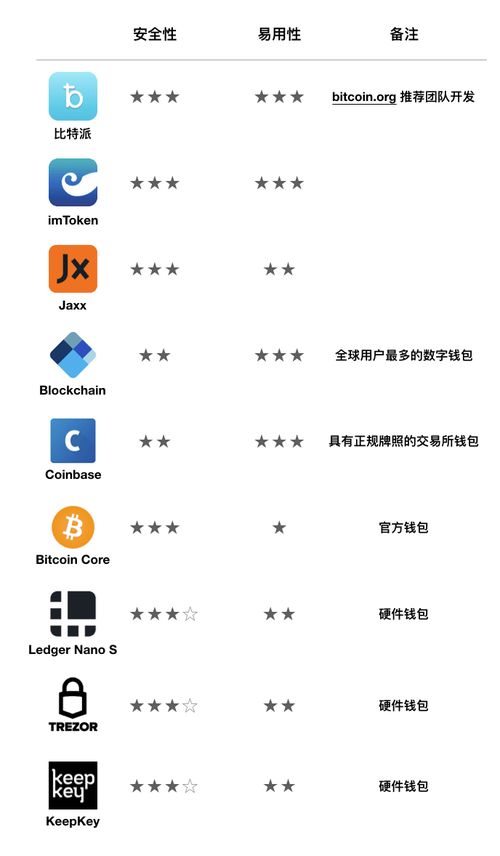比特币钱包私钥怎么导入
Title: Understanding Bitcoin Wallets and Private Keys
Bitcoin wallets are crucial components in the cryptocurrency ecosystem, facilitating the storage and management of Bitcoin holdings. Central to the security of these wallets are private keys, which grant access to the funds associated with a particular wallet address. Let's delve deeper into how Bitcoin wallets function and explore the significance of private keys.
Bitcoin Wallets: A Brief Overview
Bitcoin wallets come in various forms, including software wallets, hardware wallets, paper wallets, and even custodial wallets offered by exchanges. Each type offers its own balance between security and convenience.
1.
Software Wallets:
These are applications installed on devices like smartphones or computers. They are convenient for everyday transactions but may be susceptible to hacking if proper security measures aren't in place.2.
Hardware Wallets:
These physical devices store private keys offline, providing enhanced security against online threats. They are considered one of the safest options for longterm storage of Bitcoin.3.
Paper Wallets:
These involve printing out the public and private keys on a physical piece of paper. While secure from online attacks, they require careful handling to prevent loss or damage.4.
Custodial Wallets:
Offered by exchanges and thirdparty service providers, these wallets manage private keys on behalf of users. While convenient, they introduce counterparty risk as users do not have direct control over their keys.Private Keys: The Key to Ownership
Private keys are essentially secret codes that grant ownership of Bitcoin stored in a wallet. They are mathematically linked to Bitcoin addresses through cryptographic algorithms. Here are some key points about private keys:
1.
Length and Complexity:
Private keys are typically 256 bits in length, offering an astronomically large number of possible combinations (2^256). This immense complexity ensures the security of Bitcoin holdings, as guessing a private key is computationally infeasible.2.
Generated Randomly:
Secure wallets generate private keys using highly random processes. This randomness is crucial to prevent predictability, making it extremely difficult for attackers to guess or bruteforce private keys.3.
Never Shared:
Private keys should never be shared with anyone. Anyone possessing the private key effectively controls the associated Bitcoin. Sharing private keys compromises security and can lead to loss of funds.4.
Backup and Recovery:
Losing a private key means losing access to the Bitcoin stored in the associated wallet. It's essential to create backups of private keys and store them securely. Hardware wallets often provide recovery seeds—mnemonic phrases that can be used to regenerate private keys if the device is lost or damaged.Number of Private Keys

The number of possible private keys in Bitcoin is staggering. As mentioned earlier, private keys are 256 bits in length, resulting in 2^256 possible combinations. This number is so vast that it exceeds the total number of atoms in the observable universe! In practical terms, this means that the probability of two individuals generating the same private key is infinitesimally small.
While the exact number of private keys is difficult to quantify due to the sheer magnitude, it suffices to say that each Bitcoin wallet has a unique private key. Even if every person on Earth generated billions of wallets each second for billions of years, the probability of generating the same private key would still be negligible.
Best Practices for Private Key Management
Given the critical role of private keys in Bitcoin ownership, it's essential to follow best practices for their management:
1.
Use Secure Wallets:
Opt for reputable wallets with a track record of security and reliability. Hardware wallets are generally recommended for longterm storage, while software wallets are suitable for everyday transactions.2.
Backup Your Keys:
Always create backups of your private keys or recovery seeds and store them securely. Consider using multiple backup locations to mitigate the risk of loss.3.
Keep Keys Offline:
Whenever possible, store private keys offline to minimize the risk of hacking or unauthorized access. Hardware wallets provide an excellent balance between security and usability.4.
Be Wary of Phishing:
Exercise caution when entering private keys or recovery seeds online. Beware of phishing attempts and only input sensitive information on trusted platforms.In conclusion, Bitcoin wallets rely on private keys to secure and manage funds. Understanding the importance of private keys and implementing proper security measures is crucial for safeguarding your Bitcoin holdings in an increasingly digital world.
References:
Andreas M. Antonopoulos, "Mastering Bitcoin: Unlocking Digital Cryptocurrencies"
Jameson Lopp, "Bitcoin Resources"
版权声明
本文仅代表作者观点,不代表百度立场。
本文系作者授权百度百家发表,未经许可,不得转载。

















评论